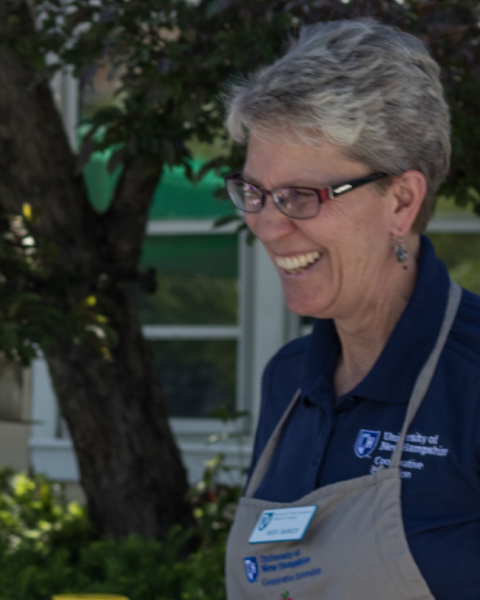UNH Extension Awarded Nearly $20,000 to Expand Critical Food Access Work For NH

The New Hampshire Children’s Health Foundation has awarded the University of New Hampshire Cooperative Extension a $19,900 grant to further develop its food access map through key stakeholders and family feedback.
UNH Extension will collaborate with state partners committed to federal nutrition and food assistance programs to strengthen the map’s effectiveness with food insecure families.
Families and individuals who experience food insecurity have a lack of regular access to enough nutritious food to live a healthy and active life.
When New Hampshire shut down in March 2020 due to COVID-19 there was a drastic change to the food assistance landscape as well as lack of connection of these changing resources for food insecure families.
In partnership with New Hampshire’s public assistance community, UNH Extension Nutrition Connections Program (UNHENC) responded by creating the NH Food Access Map, a promising strategy which has become a signature project for the organization.
Due to the pandemic, one in six households is now food insecure, twice the rate it was at the beginning of 2020. Of greatest significance, this translates to an estimated 21-23% of children now living in food insecure households in NH.
The NH Food Access Map’s mission is to provide a convenient “one-stop shopping” tool that connects food insecure families with food resources such as pantries, summer meals, SNAP/EBT incentives as well as the stakeholders who support them through federal nutrition & food assistance programs.
This grant from the NH Children’s Health Foundation will enable a rigorous suite of assessment activities devised to inform improvements to the Food Access Map, including creating a more effective and usable guide; extending the reach of the map; and making better connections between families and stakeholders.
Project director Heidi Barker said, “There will be three strategies to achieve our project goal. We will invite and engage families who experience and are at risk of food insecurity to participate in an interactive review of the map. Secondly, we will coordinate and conduct listening sessions targeting three specific groups — healthcare, school and agency staff who work directly with food insecure families. Lastly, collaborative sessions involving state leaders from WIC, NH Department of Health & Human Services, NH Department of Education, NH Food Bank, NH Hunger Solutions and UNH Extension will process the role of the map based on their organizations’ missions and visions.”
The map connects families, and the stakeholders who work with them, to many food resources in locations across the state. The map’s stakeholders are schools, healthcare providers, state agencies and non-profit organizations including food pantries. These stakeholders often serve as a gateway to food access, helping families find food in their community.
A recent report by the NH Food Alliance reveals that when people are “in the know” about food resources they utilize them. While the map was developed in reaction to the pandemic, it is a critical first step in directly addressing this lack of awareness.
Map co-developer and project coordinator Sara Oberle stated, “Our goal is to broaden the map’s reach by improving and expanding its functionality for food insecure families and stakeholders who are on the front line.”
The map also provides information about volunteer opportunities and ways that residents can donate food, personal items or money to help out their fellow Granite Staters.
For more information and to learn how to become involved with this project or be part of the listening sessions, please contact Heidi Barker, Extension Field Specialist at (603) 631-0978 or heidi.barker@unh.edu.
To view the NH Food Access Map, visit https://extension.unh.edu/resource/new-hampshire-food-access-map
